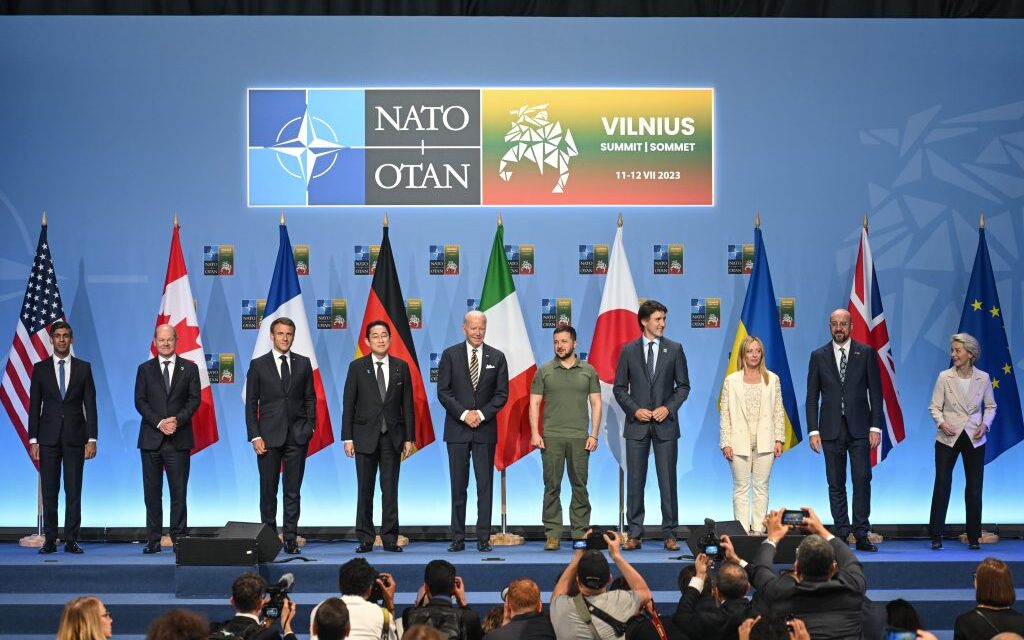In recent years, the conflict between Ukraine and Russia has escalated dramatically, drawing in the attention and resources of Western nations.
The conflict, which initially centred around the annexation of Crimea and the war in Eastern Ukraine, has now expanded to include direct attacks on Russian territories by Ukrainian forces.
Notably, the recent incursion into the Kursk region by Ukrainian forces has reignited a complex debate over the legitimacy of such actions under international law and the principles of self-defence.
Western Support and the Justification of Ukraine’s Actions
Western leaders have consistently supported Ukraine’s right to defend itself against what they call “Russian aggression.”
U.S. Secretary of State Antony Blinken, for instance, has emphasized that Ukraine has “every right to defend its sovereignty and territorial integrity.”
This stance has been echoed by European leaders such as German Chancellor Olaf Scholz, who stated that “Ukraine is defending not only its own country but the principles of freedom and democracy that we all cherish.”
This support has extended to justifying Ukraine’s actions beyond its borders.
The rationale is that Ukraine’s military operations in Russian territory are a necessary extension of its self-defence strategy.
The argument hinges on the idea that preemptive strikes on Russian military assets or infrastructure within Russia itself could prevent further aggression and reduce the threat to Ukraine’s sovereignty.
However, the recent Ukrainian attack on the Kursk region complicates this narrative.
Reports indicate that the Ukrainian forces targeted villages and civilian infrastructure, with no significant military structures hit.
This raises questions about the proportionality and legitimacy of such actions under the laws of armed conflict.
While the West has been quick to defend Ukraine’s broader strategy, the specifics of this attack challenge the narrative that all Ukrainian actions are purely defensive.
The Hypothetical Reciprocity of Self-Defence
The principles of self-defence are enshrined in international law, particularly in Article 51 of the United Nations Charter, which allows for self-defence in the case of an armed attack.
However, the interpretation of what constitutes a legitimate act of self-defence can be contentious.
If Ukraine’s attacks on Russian territory are deemed justifiable as self-defence, a hypothetical situation arises:
Could Russia, in turn, justify an invasion of Western countries that are actively supplying weapons to Ukraine?
If Russia perceives that its security is directly threatened by the influx of Western arms, could it claim that an attack on the suppliers—such as Poland, Germany, or other EU nations—would be a legitimate act of self-defence?
This scenario brings us into a murky area of international law and diplomacy.
While Western nations have condemned Russia’s invasion of Ukraine as illegal and unjustified, they simultaneously support Ukraine’s right to conduct military operations on Russian soil.
If the same logic were applied to Russia, it could be argued that preemptive strikes on weapon suppliers are necessary to protect its own territorial integrity.
Conclusion
The conflict between Ukraine and Russia has created a complex web of legal and moral dilemmas.
Western leaders have firmly supported Ukraine’s right to self-defence, even when this extends to operations within Russian territory.
However, the recent attack on the Kursk region, which targeted civilian infrastructure, challenges the narrative that all Ukrainian military actions are justified.
Moreover, the broader implications of this stance raise difficult questions.
If Ukraine’s actions are defensible as self-defence, could Russia not make a similar claim against Western nations that are fueling the conflict?
The answer is not straightforward and depends heavily on the interpretation of international law, the specific circumstances of each case, and the political dynamics at play.
As the conflict continues, these questions will likely become even more pressing, potentially reshaping the legal and ethical landscape of international relations in the years to come.





